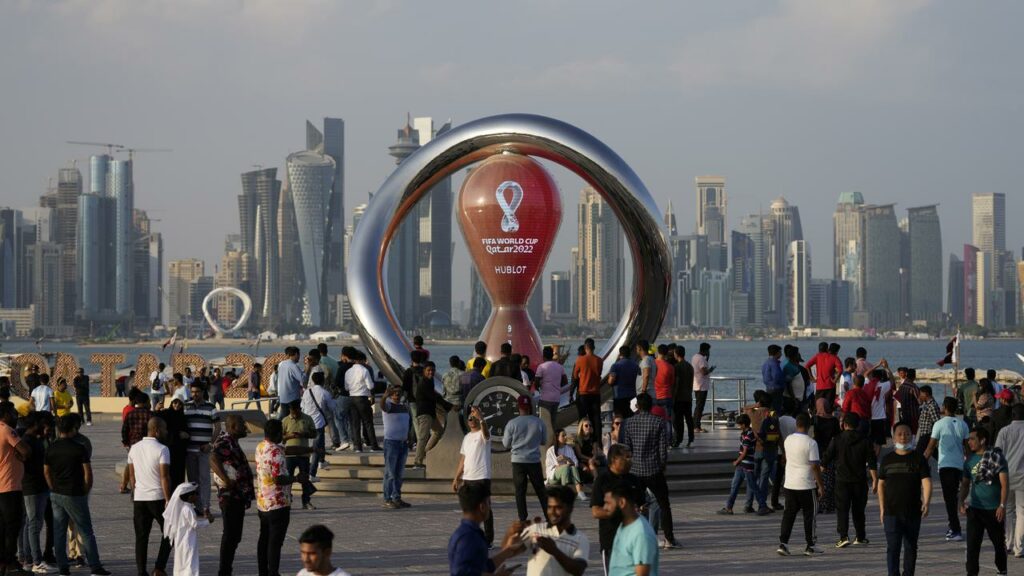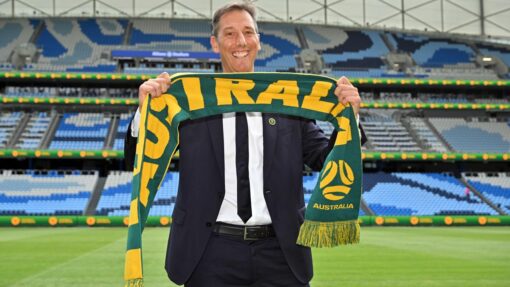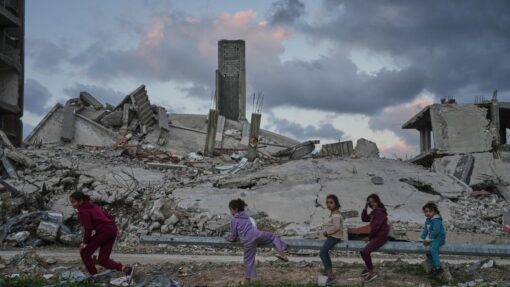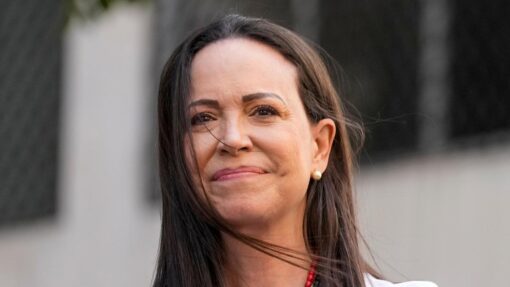Qatar’s World Cup a political football
Steve Larkin |

A mistake mired in corruption leaving a blood-stain on the beautiful game.
Or a bold, overdue shift in soccer’s landscape.
Before a ball has been kicked, Qatar’s World Cup is a political football.
The Middle Eastern nation has spent almost $A3 billion preparing to host the 32 competing nations, including Australia, from November 20 to December 18.
Just how much it spent to win hosting rights is unknown.
Some 22 executive committee members from FIFA, soccer’s governing body, voted in 2010 to award Qatar the cup – and Russia the previous edition four years ago.
Eleven of those FIFA executives have since been prosecuted, banned for life, suspended or fined for corruption.
FIFA’s president at the time, Sepp Blatter, couldn’t hide his disdain when announcing Qatar as the victor of the vote for the 2022 showpiece tournament.
He hasn’t changed his tune since.
“For me it is clear: Qatar is a mistake,” Blatter told the Swiss newspaper Tages-Anzeiger last week.
“The choice was bad.”
Qatar had never competed at a World Cup. The Middle East had never hosted one.
The Islamic country had to build infrastructure – eight stadiums, a metro train system, hotels and more.
Qatar’s heat forced the world’s biggest sporting event to be shifted from its usual June-July timeslot – and to be played in air-conditioned stadiums.
Qatar’s human rights record was criticised.
Some focused on the illegality of homosexuality in a nation of about 2.9 million people.
Others spotlighted many from a predominantly migrant workforce who died building cup infrastructure – numbers fluctuate between 6500 deaths and three, depending on whether human rights groups or QatarI officials are talking.
“How can Australian football fans, in the spirit of the game, understanding the magnitude of the event, endorse or at least not directly question what has happened?” Barun Ghimire, a human rights lawyer, told AAP.
“Are we as a collective, globally, okay with exploitation being part of the World Cup?
“That is my question … that is why I say it’s a blood-stained cup.”
Australia’s Socceroos echoed such concerns when, last month, they issued a collective video message.
Australian players called for the decriminalisation of same-sex relationships in Qatar and demanded improvement in worker rights, labelling reforms in the host country as inconsistent.
Qatar’s cup organisers, the Supreme Committee for Delivery and Legacy, responded by saying “no country is perfect”.
FIFA president Gianni Infantino wrote to all 32 competing nations on November 4, appealing to them not to drag football “into every ideological or political battle that exists”.
Just a dozen days later, Infantino addressed the Group of Twenty (G20) summit and called for a ceasefire for the duration of the cup in the Russia-Ukraine war.
So much for football not getting involved in politics.
The off-field machinations and ramifications have overshadowed the lead-in to what should be a celebration of sport.
“Football is a truly global game,” Australian legend Tim Cahill told AAP.
“When you look at having the first World Cup of its kind in this region, it’s pretty exciting, it’s connecting the world.
“The next World Cup is going to be in America, Mexico and Canada.
“Football should go everywhere … I think it’s just great that the world can be connected in the Middle East to host the World Cup in 2022.”
On the pitch, Brazil enter Qatar ranked No.1 in the world – the brilliant Brazilians have won five World Cups, the most of any nation.
Belgium, Argentina and France – the reigning champions who open their cup defence against Australia – are ranked next.
“France are the obvious (favourite),” Cahill said.
“You can talk about Germany and Brazil and Argentina.
“But England … the attacking side of their team is incredible.
“Literally, if (coach) Gareth Southgate can get it right tactically, I think England are the dark horses, England will be someone with more than an outside chance to win the World Cup.”
Cahill’s Socceroos have advanced from the group stage just once in five past editions of the cup, and won only two games in the history at the cup finals.
So what constitutes success for the Australians, also grouped with Denmark and Tunisia?
“Success was qualifying for the World Cup,” Cahill said.
“We play two of the top countries in the world, Denmark and France, so that is not easy.
“And then you look at Tunisia which is the game that realistically both countries are going to think that is where they are going to get their three points (for a win), a draw won’t be good enough.
“From Denmark and France (games) you look for a draw or an upset.”
AAP


